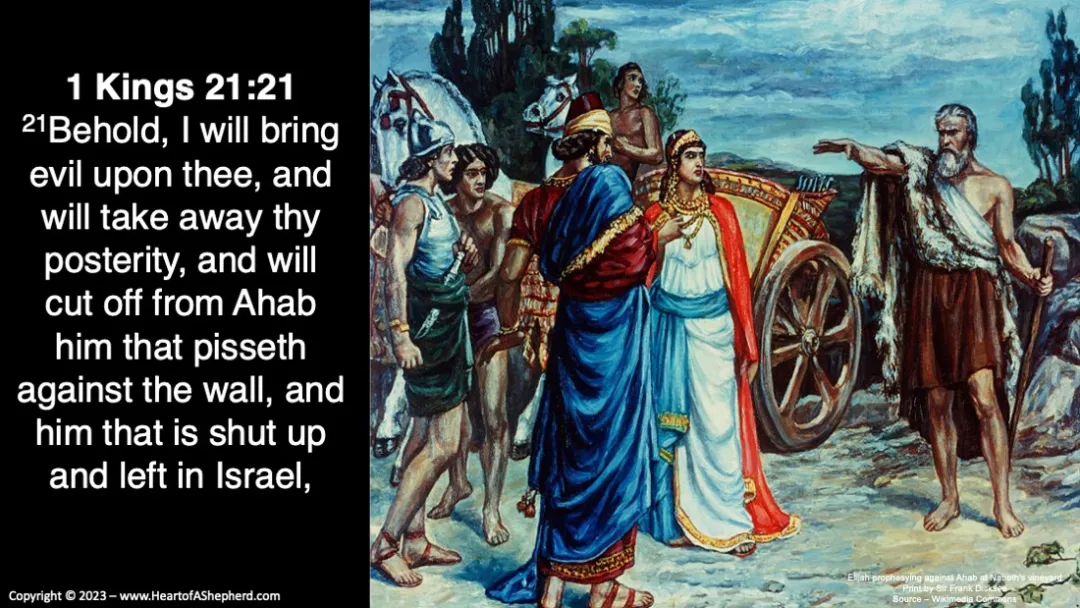THE SEED
“Behold, I will bring evil upon thee, and will take away thy posterity, and will cut off from Ahab him that pisseth against the wall, and him that is shut up and left in Israel,” 1 Kings 21:21 KJV
The above Scripture is the judgment of God upon King Ahab for his greedy act against Naboth. The word of the Lord came to him with heavy punishment which included his generation. The whole family of King Ahab was wiped out as a result of greed for worldly possessions which also caused the vineyard’s owner to lose his life. Greed is a cancerous cell that has eaten deep into the fabric of many in our society and it is a concern because children of God who are supposed to know better are falling into the same trap. This act takes a toll on the masses when the political leaders and rulers are greedy to the point of amassing the wealth of their nation for themselves at the expense of the people they are supposed to look after. As a child of God, one shouldn’t be greedy because of the repercussions. Greed is not a fruit of the spirit but an act of flesh that can bring the judgement of God upon anyone who engages in it just like King Ahab. As a Christian caution yourself from being greedy before you are cautioned by God for your greed.
BIBLE READINGS: 1 Kings 21:17-21
PRAYER: Heavenly Father, help me to overcome greed and bless me with a spirit of satisfaction with what your grace has given me in Jesus’ name I pray.
OJÚKÒKÒRÒ
IRUGBIN NAA
“Kiyesi i, emi o mu ibi wá sori rẹ, emi o si mu awọn irandiran kuro, emi o si parẹ kuro lọdọ Ahabu ẹniti o binu si odi, ati ẹniti o sé mọ́ ti o si kù ni Israeli.” 1 Ọba 21:21
Ìwé Mímọ́ tó wà lókè yìí jẹ́ ìdájọ́ Ọlọ́run lórí ọba Ahabu nítorí ìwà wọbia rẹ̀ lodi sí Nábótì. Ọ̀rọ̀ Oluwa wa ba a pẹ̀lú ijiya to wu wo, eyi ti o ko iran rẹ gbogbo papọ. Gbogbo Ìdílé Ahabu Ọba ni a parun latari ìwà wọbia fún ọrọ̀ aye ti o tun mu ki ẹni to ni ọgba-ajara padanu ẹ̀mí rẹ. Jíjẹ oníwọbia dabi arun jẹjẹrẹ ti o ti gbé ọpọlọpọ eniyan wọ bi aṣọ ninu awujọ wa, ati pe o jẹ aniyan nitori pe awọn ọmọ Ọlọrun ti o yẹ ki wọn mọ ohun ti o dara julọ n ṣubu sinu pakute kanna ninu iṣe wọbia yii. Irú iwa bayi máa npa àwọn ọpọ èniyàn lára nígbàtí awọn oludari olóṣèlú ati awọn alaṣẹ jẹ́ oníwọbia de aaye ti wọ́n fi nko awọn ọrọ ti orilẹ-ede wọn jọ fun ara wọn; laibikita fun awọn eniyan ti wọn yẹ ki wọn tọ́jú. Bi ọmọ Ọlọ́run, eniyan ko yẹ ki o jẹ oníwọbia, torí awọn abajade nipa jíjẹ oníwọbia. Iṣe wọbia kii ṣe eso ti ẹmi, ṣugbọn iṣe ti ara lo jẹ, láti mú ìdájọ́ Ọlọ́run wa fún ẹnikẹ́ni tí ó bá ń ṣe é gẹ́gẹ́ bí Ọba Ahabu. Gẹ́gẹ́ bí Kristẹni, ṣọ́ra fún, láti má ṣe jẹ́ oníwọbia kí Ọlọ́run tó kìlọ̀ fún ọ fún ìṣe wọbia rẹ.
BIBELI KIKA: 1 Ọba Kinni 21:17-21
ADURA: Bàbá wa tí nbẹ lọ́run, rán mí lọwọ lati borí ìwà wọbià kí ó sì bukun mí pẹ̀lú ẹ̀mí ìtẹ́lọ́rùn pẹ̀lú ohun tí oreofe ti fun mi. Ní orúkọ Jésú ní mo gbàdúrà amin.
